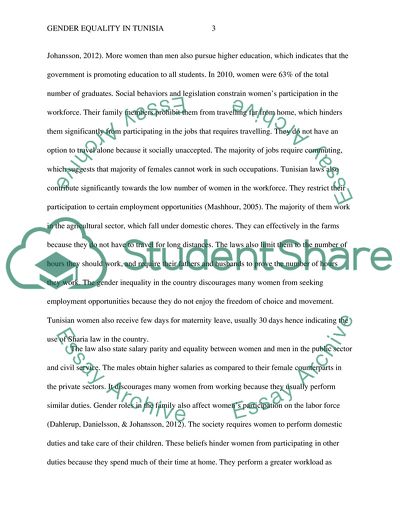Cite this document
(Sharia Law and Gender Equality in Tunisia Assignment Example | Topics and Well Written Essays - 1750 words, n.d.)
Sharia Law and Gender Equality in Tunisia Assignment Example | Topics and Well Written Essays - 1750 words. https://studentshare.org/gender-sexual-studies/1877005-sharia-law-and-gender-equality-in-tunisia-for-the-role-of-woman
Sharia Law and Gender Equality in Tunisia Assignment Example | Topics and Well Written Essays - 1750 words. https://studentshare.org/gender-sexual-studies/1877005-sharia-law-and-gender-equality-in-tunisia-for-the-role-of-woman
(Sharia Law and Gender Equality in Tunisia Assignment Example | Topics and Well Written Essays - 1750 Words)
Sharia Law and Gender Equality in Tunisia Assignment Example | Topics and Well Written Essays - 1750 Words. https://studentshare.org/gender-sexual-studies/1877005-sharia-law-and-gender-equality-in-tunisia-for-the-role-of-woman.
Sharia Law and Gender Equality in Tunisia Assignment Example | Topics and Well Written Essays - 1750 Words. https://studentshare.org/gender-sexual-studies/1877005-sharia-law-and-gender-equality-in-tunisia-for-the-role-of-woman.
“Sharia Law and Gender Equality in Tunisia Assignment Example | Topics and Well Written Essays - 1750 Words”. https://studentshare.org/gender-sexual-studies/1877005-sharia-law-and-gender-equality-in-tunisia-for-the-role-of-woman.


